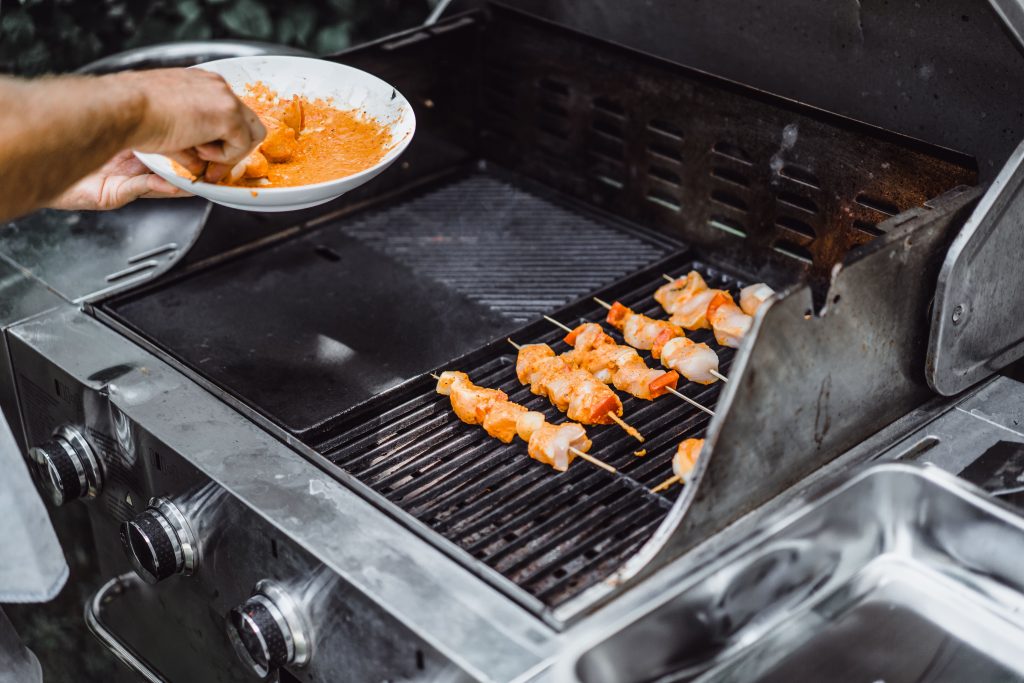
Shopping for a grill isn’t exactly a smooth ride. There’s no shortage of shiny models lined up like showroom cars, each one promising to turn your backyard into a five-star steakhouse. And yet, when the noise settles, the real question is pretty simple: gas grill or electric — which one makes sense for the way you actually cook?
This isn’t just a “flame vs plug” thing. It’s about how much control you want, how much space you’ve got, and whether you’re in it for flavor, convenience, or maybe both.
What the Heat Really Feels Like
A gas grill, whether it runs on propane or a line hooked up to the wall, brings raw energy to the party. Flames hit fast. Heat climbs quickly. You can sear the heck out of a thick-cut steak or fire-char peppers until they blister. It’s that aggressive, smoky power that makes gas grills the go-to for anyone chasing that classic outdoor flavor.
Electric? Entirely different rhythm. No fire, no flare-ups, no fuss. It’s clean, predictable, and neat. You won’t be torching burgers into oblivion or sending smoke signals to your neighbors, but you’ll get an even cook every time — and a setup that feels a little more “appliance” than “adventure.”
If someone’s just here for the bullet points:
- Gas grills hit hard, get hot fast, and bring real-deal char.
- Electric grills stay tidy, smoke less, and play nice with balconies and indoor spaces.
And for folks diving into a kitchen revamp or building out their grilling zone from scratch, it makes sense to check out gear from SL Kitchen Equipments. There is a line of kitchen equipment
that covers both gas and electric — solid builds, nothing gimmicky.
The Place You Cook Shapes Everything
Grill type often gets decided by your zip code more than your taste buds. Living in a high-rise with a narrow balcony and a fire safety sign posted next to the elevator? Then yeah, forget open flames. Electric wins by default — you can use it without violating the building rules or risking an awkward chat with the fire department.
Got a yard? A patio? Even just a wide patch of concrete? Then propane or natural gas gives you the room to breathe — and grill for real. You can go big, roll it out, hook it up, and cook for six without blinking.
That’s the kicker: before you obsess over features, be honest about your space.
Cost, Care, and the Long Haul
Electric grills are low drama. They’re cheaper to buy, easy to store, and wipe down like a countertop. There’s no tank to refill, no igniter to troubleshoot. If you’re the kind of person who hates gear that needs babysitting, electric might feel like a breath of fresh air.
Gas grills are high-maintenance friends. They cost more upfront, chew through propane (which never seems full when you need it), and eventually demand a deep clean. But the trade-off? Big flavor and flexibility.
Let’s put it plainly:
- Electric: Budget-friendly, simple to clean, ideal for small living.
- Gas: Pricey but powerful, with the kind of performance that pays off if you actually use it.
So, Which One Wins?
Honestly, there’s no champion here. Just choices.
Love the crackle of flames and want that open-fire crisp? Gas is your guy.
Want plug-and-play simplicity that won’t smoke up the living room? Electric has your back.
The best grill isn’t the one with the most features — it’s the one you’ll use without grumbling.
Final Thoughts — Just Use It
Some people treat their grill like a sacred altar. Others forget they even own one. Doesn’t matter which side you’re on — what counts is this: use the thing. Doesn’t have to be fancy. Doesn’t have to cost a fortune.
Whether it’s a flame-powered monster in the backyard or a compact electric on a tiny balcony table, the right grill is the one that gets fired up again and again — because it fits your life, not just your wishlist.